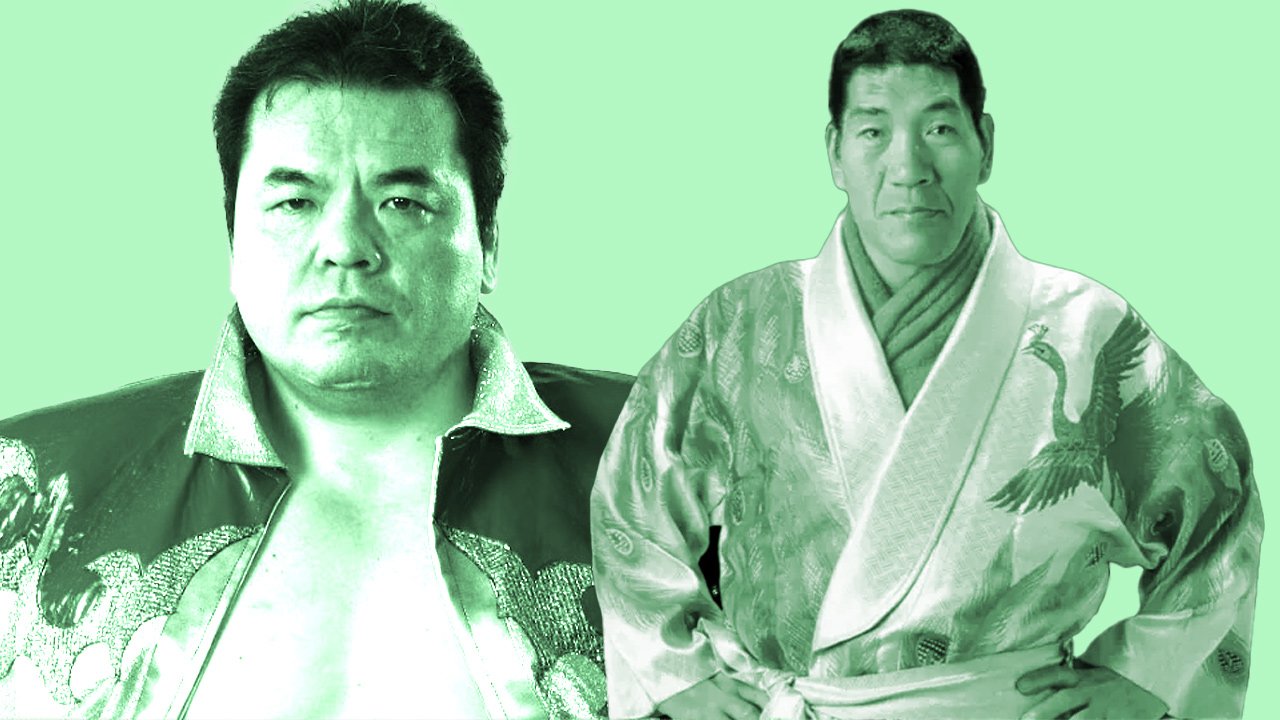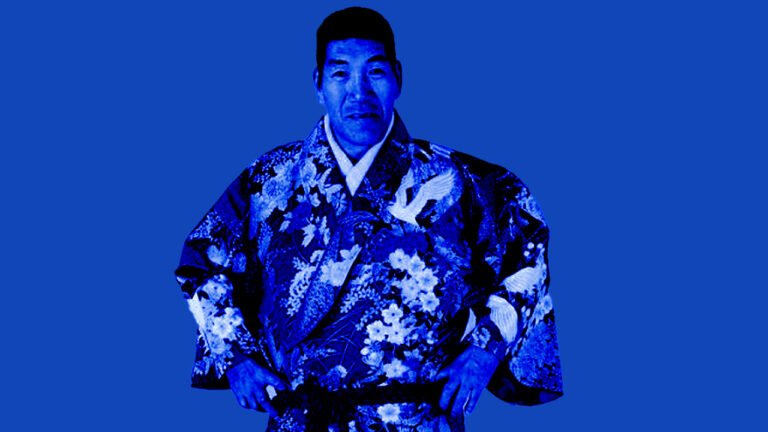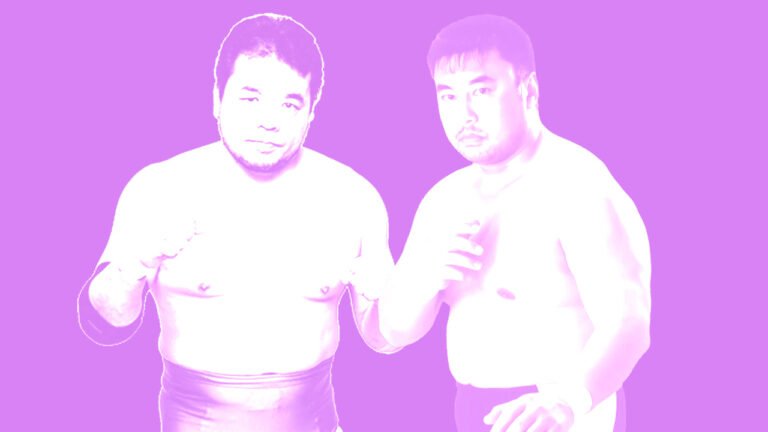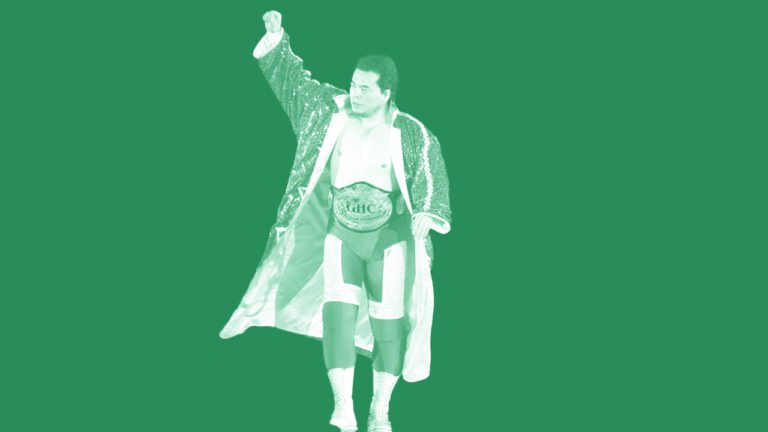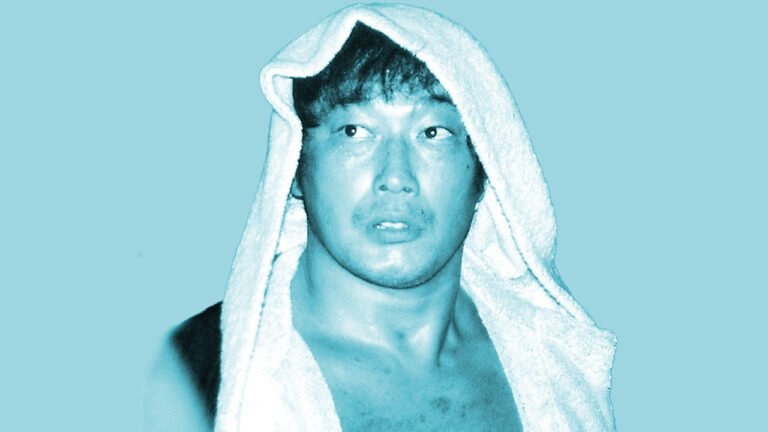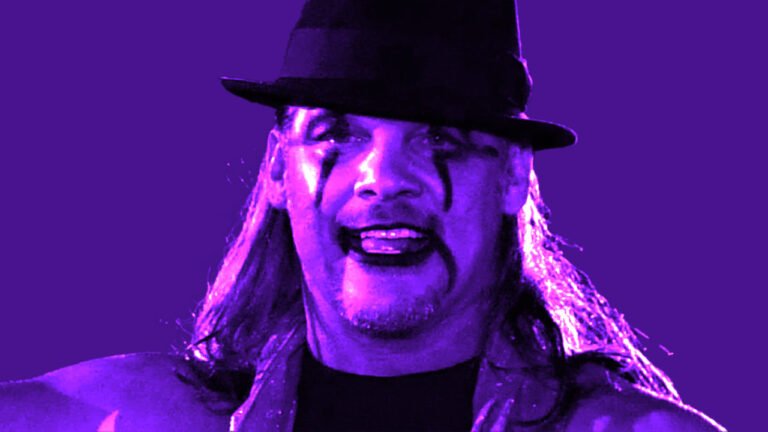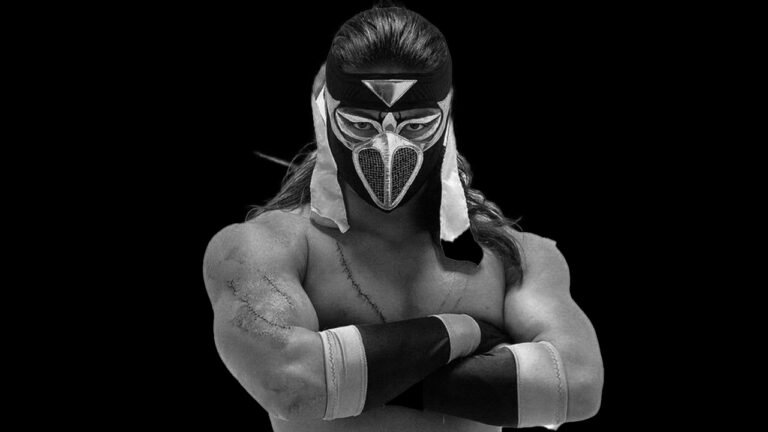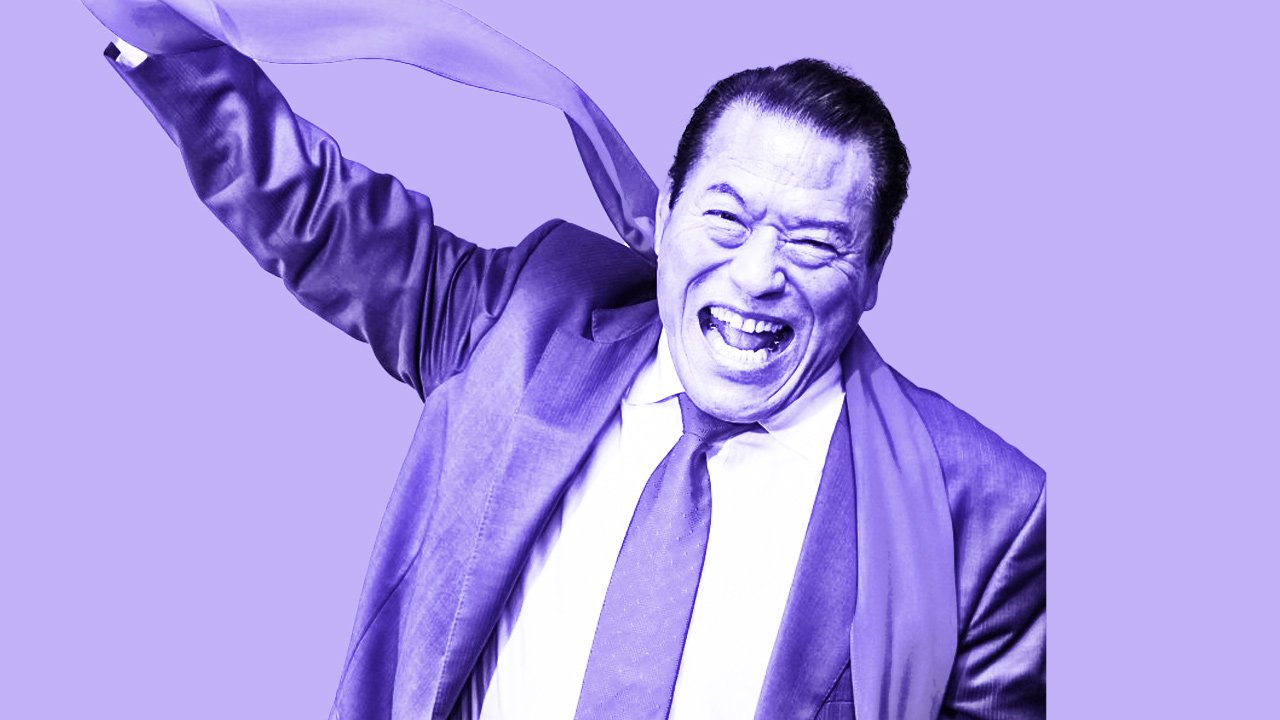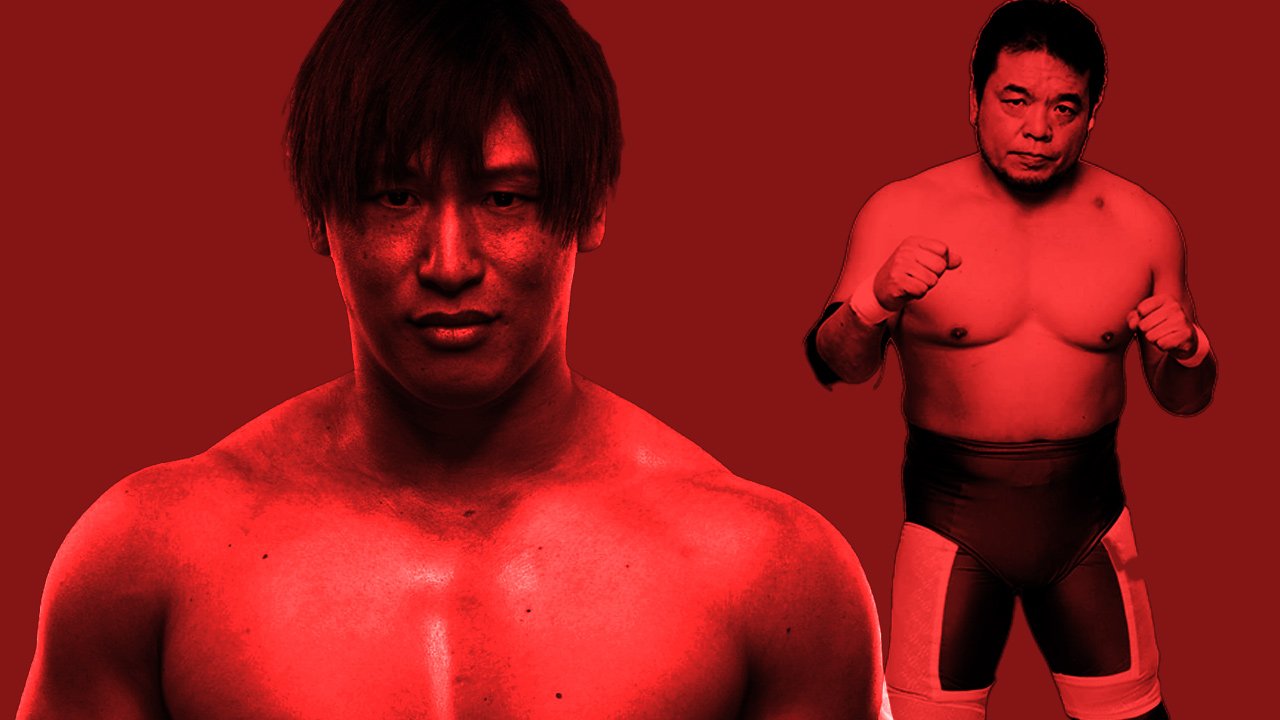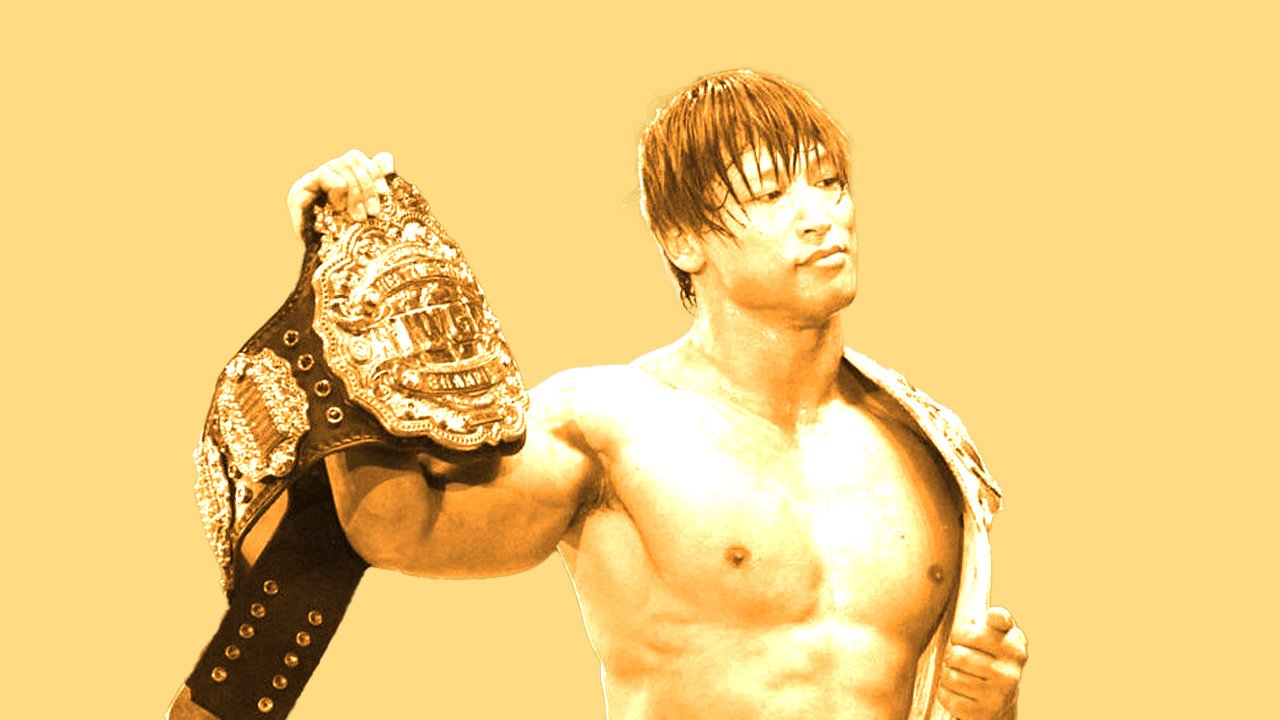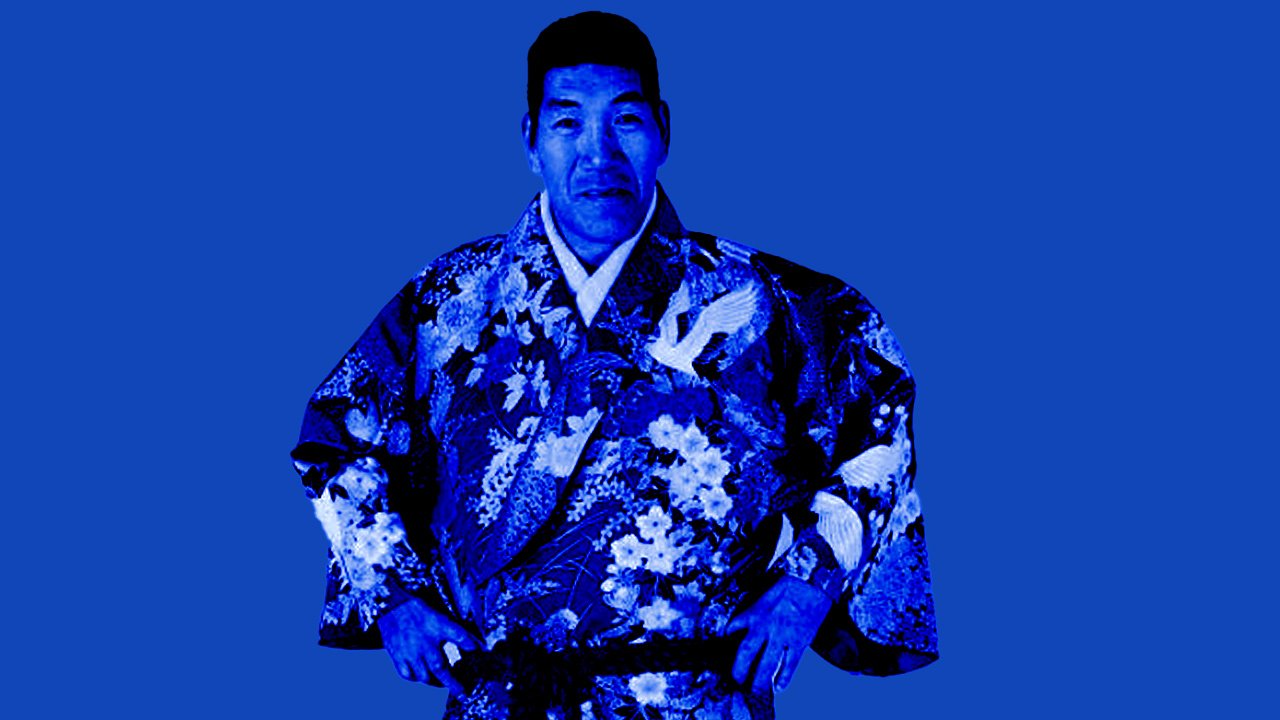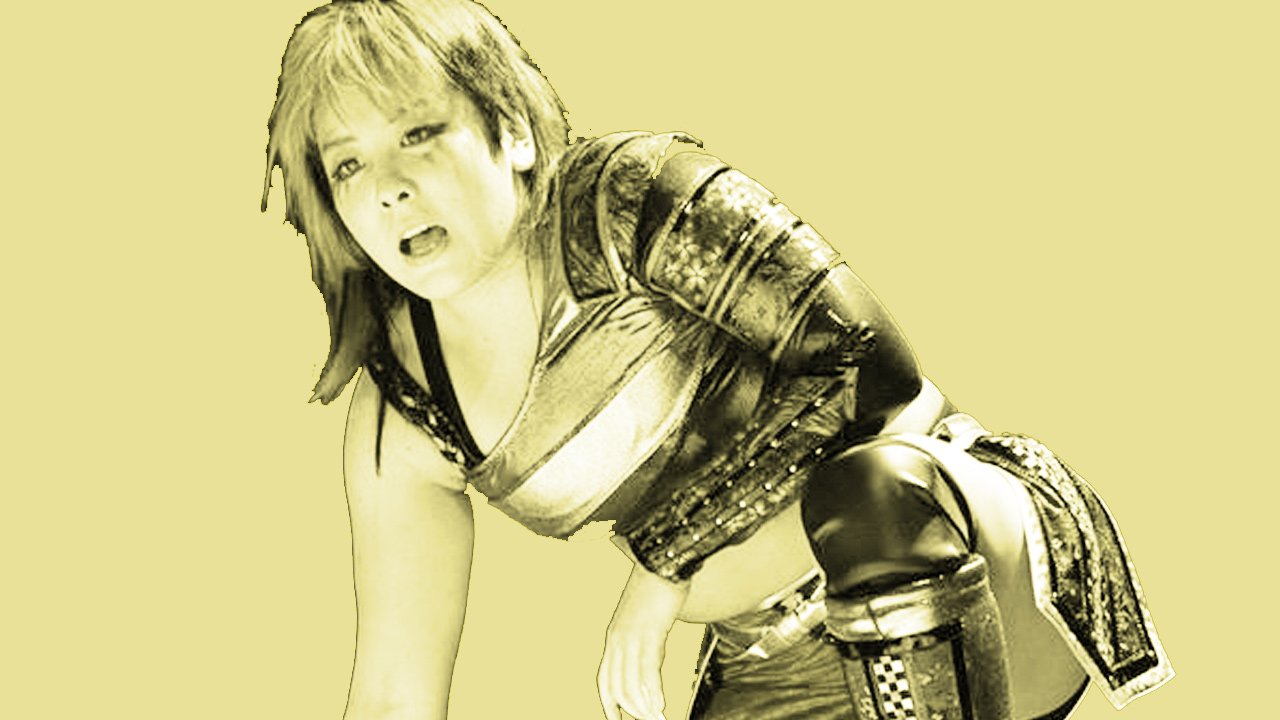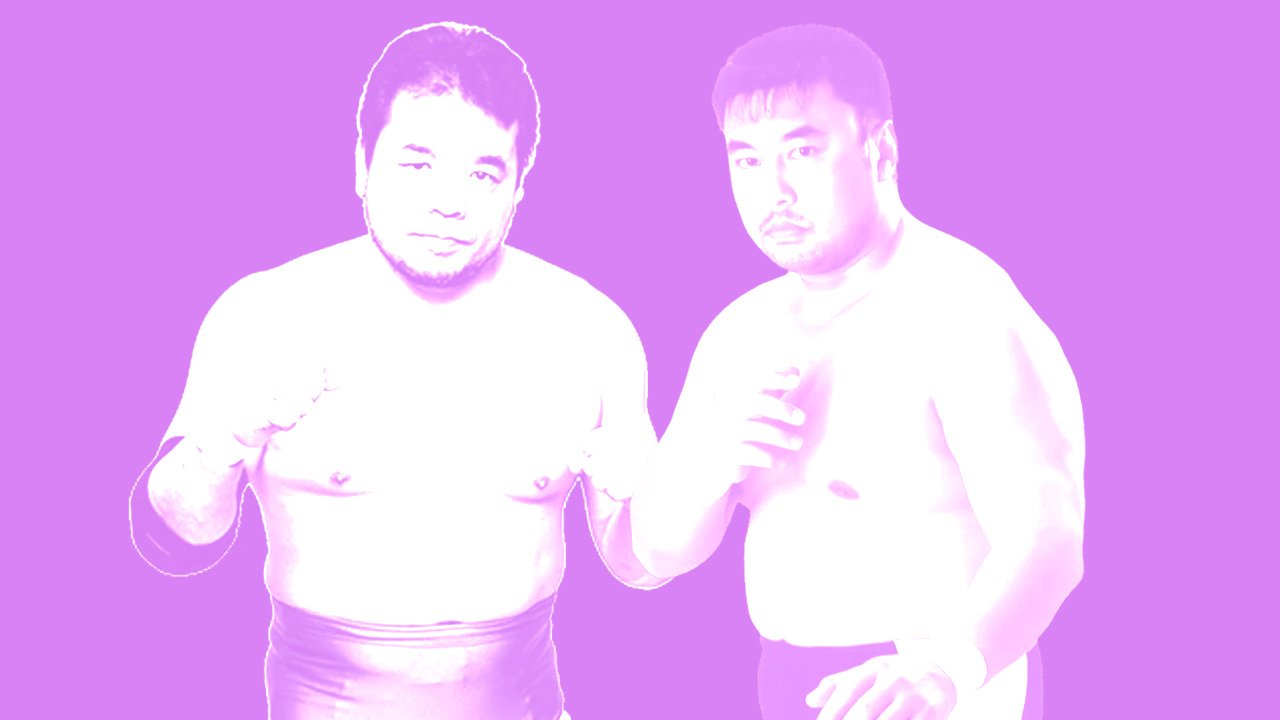The foundation of Pro Wrestling NOAH is one of the most dramatic and impactful stories in Japanese wrestling history, beginning with the All Japan Pro Wrestling exodus
Emerging from the ashes of a power struggle in All Japan Pro Wrestling (AJPW), the exodus that birthed NOAH was driven by one of wrestling’s most revered figures, Mitsuharu Misawa.
It all began in 1999, following the death of AJPW founder and icon Giant Baba. Misawa, the company’s top star and Baba’s trusted protégé, was named president, but his tenure was fraught with tension.
Mitsuharu Misawa Was Named AJPW President After Giant Baba’s Death

All Japan Pro Wrestling founder Giant Baba tragically passed away. The legendary wrestler founded the company in 1972 and was the company’s top star for the first decade before dropping into the midcard as his body struggled to cope with wrestling.
He wrestled his last match on December 5th 1998 and quickly retired to a hospital bed following the bout. This is where he remained until the end of his life just a month later.
It was here that he watched his last wrestling match as Toshiaki Kawada defeated Mitsuharu Misawa for the Triple Crown Heavyweight Championship on January 22nd 1999.
Giant Baba famously said that it was the best match he had ever seen. He passed away just nine days later from liver failure, after suffering from colon cancer for some time. The AJPW owner kept his diagnosis a shock from everyone but his wife and even his closest employees didn’t know about it until after his death.
In celebration of his life and career, AJPW held the Giant Baba Memorial Show at the Tokyo Dome on the 2nd of May 1999. Despite Baba never managing to sell out the legendary venue during his life, the company drew 65,000 fans for their show to say goodbye to the Japanese legend.
Following his death, top star Mitsuharu Misawa was named as the president of All Japan Pro Wrestling. Misawa was close with Giant Baba and seemed the right choice to take over from his mentor.
However, it was Giant Baba’s widow who wanted nothing to do with Misawa and her personal grudge led to an exodus from All Japan Pro Wrestling the following year.
Mitsuharu Misawa & Motoko Baba Butted Heads After He Was Named President
A great change took place in All Japan Pro Wrestling after Giant Baba’s death
Baba’s widow, Motoko Baba, took over as the new head of the company following her husband’s death. She had always worked side-by-side with Giant Baba and the pair had their own “Good cop, bad cop” patter down.
While Giant Baba would always bring the good news and remained friends with the talent, Motoko was tasked with bringing the hammer down on the talent. This was a good system as it let Baba still retain the support of the wrestlers despite actually being the one making the tough decisions in All Japan Pro Wrestling.

Sadly, after his death, their duo lost their good cop. All the responsibility fell on Motoko Baba and she did not have the light touch that her husband possessed. She gained the nickname “Dragon Lady” by the All Japan wrestlers due to her fiery temperament behind the scenes.
Why Mitsuharu Misawa Left AJPW For NOAH
As the new president of the company, Mitsuharu Misawa butted heads with the owner of All Japan Pro Wrestling. Motoko Baba owned 85% of the company shares (with Nippon TV holding the rest), so every decision he made had to go through Motoko first. He may have been booking the show but not without the explicit consent of the company owner.
Motoko Baba had never been a fan of Misawa’s. When Genichiro Tenryu led an exodus from All Japan Pro Wrestling in 1990 to form Super World of Sports, Giant Baba had pushed stats like Kenta Kobashi and Mitsuharu Misawa as the next main eventers in the company. His wife was strongly against the idea, although luckily for the company her pleas were ignored in this instance.
Even wrestlers who backed Misawa were removed from the company in order to prove Motoko was the woman in charge. Jumbo Tsuruta was fired from the promotion after publicly backing Misawa to take over the company, urging Baba’s widow to step back and simply be known as the owner with little influence over the product.
It seems clear it wasn’t a bad idea. Motoko was even more traditional than Giant Baba had been and refused any suggestions that AJPW should modernise their product. The company was booked in the same way it had been back in the 1970s and any attempt to pivot from that formula by Misawa was thoroughly rejected.
Her logic was that Japanese wrestling had fallen from its peak and she wanted to get All Japan back to the top. While Misawa thought that modernising the product and pushing younger talent was the way forward, Motoko’s idea that keeping with the traditional idea of what wrestling is was the way forward.
Despite being the company president, Mitsuharu Misawa effectively had zero power in the company. With the future of AJPW clearly doomed with Motoko Baba in charge, Misawa knew the only way to keep the spirit of Giant Baba alive was to lead a mass exodus from All Japan and create their own promotion – Pro Wrestling NOAH.
Misawa Led An Exodus From AJPW To Form Pro Wrestling NOAH
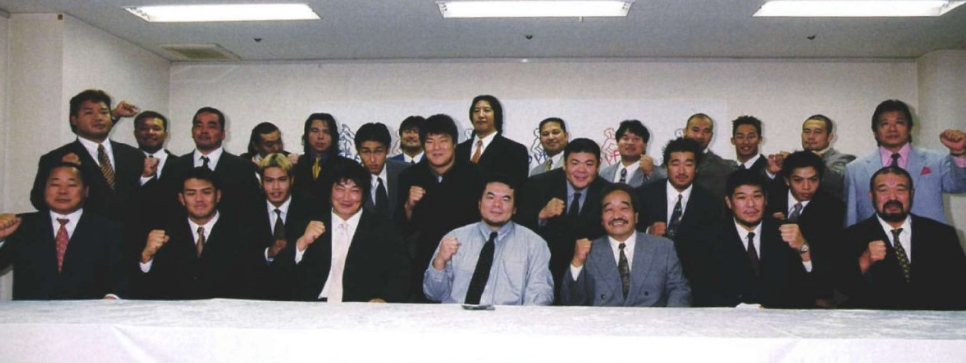
On June 16th 2000, Mitsuharu Misawa called a press conference to announce that he was leaving All Japan Pro Wrestling.
While this wasn’t the most shocking thing in the world, the real surprise was that he wasn’t alone. 24 of the 26 main roster members from AJPW had joined him in a mass exodus from the company.
The Wrestlers Who Left AJPW For NOAH
The following wrestlers made the jump from All Japan Pro Wrestling to Pro Wrestling NOAH after the fallout between Mitsuharu Misawa and Motoko Baba.
- Yoshinobu Kanemaru
- Takeshi Morishima
- Naomichi Marufuji
- Kentaro Shiga
- Takeshi Rikio
- Mitsuo Momota
- Rusher Kimura
- Haruka Eigen
- Tsuyoshi Kikuchi
- Kenta Kobayashi (KENTA)
- Takao Omori
- Yoshihiro Takayama
- Jun Izumida
- Masao Inoue
- Yoshinari Ogawa
- Akira Taue
- Jun Akiyama
- Mitsuharu Misawa
- Kenta Kobashi
- Vader
The jump to their own promotion had been a long time coming and should have been no surprise to Motoko Baba. She had already removed Misawa as the president of the company and the majority of the wrestlers were now working on handshake deals.
Motoko hadn’t authorised Misawa to award any pay raises to the wrestlers, so they had all refused to sign new deals with the company. His plans to alter their contracts to give them shares in the company and free healthcare were shot down by the owner, although the attempt only increased their loyalty towards The Emerald Warrior.
The AJPW Exodus Saw Misawa Set Up His New Promotion Called Pro Wrestling NOAH
The name of Mitsuharu Misawa’s new promotion was revealed as Pro Wrestling NOAH.
It was named after the biblical character, characterising the promotion as the life raft for Japanese wrestling to avoid being drowned by the iron grip of Motoko Baba. It was quite an on-the-nose name but it worked as a modern wrestling promotion.

All of AJPW’s biggest stars made the jump to NOAH. Names like Kenta Kobashi, Jun Akiyama, Yoshihiro Takayama and Vader were joined by young stars like Naomichi Marufuji and KENTA in this mass exodus from AJPW.
This exodus left AJPW with just two wrestlers on their books. Masanobu Fuchi and Toshiaki Kawada were the only holdouts. Kawada was the most shocking name, given his incredible matches with Misawa and the other of the Four Pillars of Heaven over the years.
However, he had known issues with Misawa backstage and the pair reportedly came to blows on numerous occasions. Despite being the more athletic of the two and (some say) the best worker of the four, Kawada was unhappy that his rival was given more success in the company.
This was by design, as Giant Baba was known to stoke the tensions between his top talent to try and get the best matches out of them in the ring.
He knew that he would always be in Misawa’s shadow in NOAH, so would have rejected the call to leave the company to join him. I say that because Kawada wasn’t asked by Misawa to leave with him and the rest of the company, something Kawada later said he was grateful for.
NOAH Also Took AJPW’s TV Deal With Nippon TV
These two men were the only thing All Japan was left with, as NOAH took their television deal when they formed the new promotion. Later that week, Kawada and Fuchi held a press conference, revealing some devastating news about the future of the promotion.
They announced Nippon TV (who owned 15% of the company) had cancelled their broadcast of All Japan’s programming after 27 years and had signed a deal to show NOAH’s newest offering. This was eerily similar to how Giant Baba formed AJPW in 1972 after splitting from JWA.
Their new Colosseo show was shown every Saturday in thirty-minute slots and immediately made NOAH into competition for all the top Japanese promotions. The AJPW exodus and the creation of NOAH were as significant to Japanese wrestling as Tony Khan launching AEW in January 2019.
A month after announcing their split, Mitsuharu Misawa and the rest of the NOAH roster honoured Their final booking and wrestled their last match for AJPW. They were largely relegated to the mid-card, with the group getting a frosty reception backstage from Motoko Baba.
Pro Wrestling NOAH Became A Huge Force Under Misawa’s Ownership
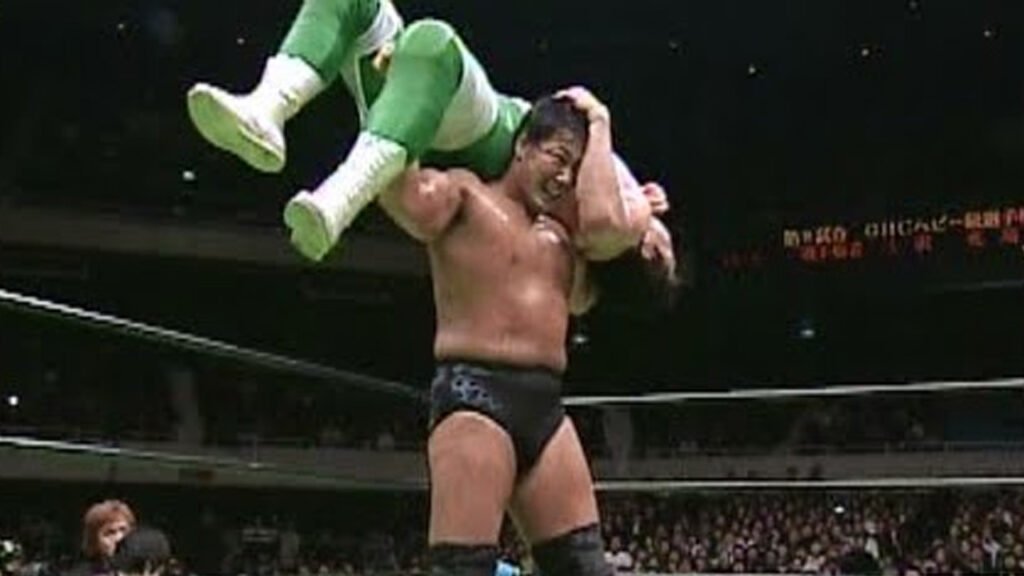
Pro Wrestling NOAH debuted on August 5th, 2000 with a massive main event. It was a tag team match that saw three of the four pillars competing in a fantastic match. Misawa teamed with Akira Taue against Kenta Kobashi and a new fourth in Jun Akiyama, a superb wrestler who would never have reached the top if he stayed in All Japan.
NOAH took a lot of what Giant Baba did in his promotion but with some key differences. While Baba was against wrestlers from other promotions wrestling for him, Misawa was much more lenient about who competed for him. They also pushed a very strong junior heavyweight division which allowed Marufuji and KENTA to become some of the best wrestlers in the world.
It quickly became the biggest promotion in Japan, coupling its fantastic shows with New Japan Pro Wrestling’s struggles with Inokiism in the mid-2000s. They were named best promotion in 2004 and 2005 by the Wrestling Observer and continued putting on some of the best matches ever during this period.
Misawa would continue to run the company until 2009, although his booking was not without its issues.
He struggled to push younger stars about himself and Kenta Kobashi, not wanting to risk his business on these unproven stars. As such, KENTA and Marufuji failed to make the step up to heavyweight and weren’t able to carry the company after the pair were gone.
He ran NOAH until 2009 when, tragically, Mitsuharu Misawa died in the ring. His refusal to push younger stars meant he felt compelled to keep wrestling after Kenta Kobashi was forced to exit the ring due to cancer treatment and various injuries in the years following.
Discover the real story behind Kenta Kobashi’s cancer fight.
The company continued without their founder but was discovered to be in business with the Yakuza in 2012, causing great controversy.
These things, coupled with the resurgence of New Japan reduced their market share, although Pro Wrestling NOAH are still in business over two decades after the mass exodus of AJPW helped form the company.
